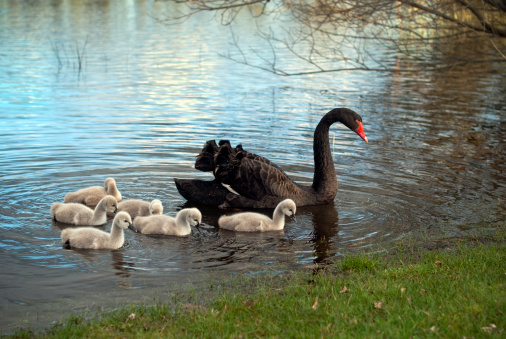Perth is the capital city of the state of Western Australia.
About 2 million people live in the city.
The city is built beside the Swan River.
Perth is a very windy city.
Perth: the capital city of Western Australia
Corbis images
The city covers an area of 5306 square kilometres and is built on the Swan River.
The first people to live in Perth
The first people to live in the area were the Aboriginal peoples. They had occupied the land for thousands of years before European settlers arrived. The Wujuk people lived in the area in the south-west.
The first European settlers were led by Captain James Sterling, who came to the Perth area in 1829 and at first the the aboriginal people and the settlers got on well. However, by the end of the 1830s, the Europeans had displaced the Aboriginal peoples from the best land and they were later moved to reserves set aside for them by the government.
The city was officially named in 1829 by Captain Sterling, after a city in Scotland.
©iStock
The city is run by a city council, elected by the people of the city. A Lord Mayor leads the city council.
The State Parliament of Western Australia is in Perth.
Perth's buildings are a blend of the old and the new ©iStock
Perth has a Mediterranean climate which means that the summers are warm and dry and the winters are cool and wet. During the summer the average temperature is about 29C but can reach 40C. However most afternoons when the temperature is high, an ocean wind blows across the city and cools it. This wind is known as the 'Fremantle Doctor'. In winter the average temperature is about 17C and rarely falls below 9C.
Perth is the business centre for Western Australia and is a modern city. The buildings are a blend of old and new.
The Swan River is named for the black swans that live there © Getty Images
The city is famous for its Botanic Gardens in Kings Park. Here it is possible to see some of the more than 8000 varieties of wildflowers, found in no other part of the world, which grow in Western Australia. The annual Wildflower festival attracts thousands of visitors from around the world.
The Swan River was originally named 'Black Swan River', because of the birds that once nested along its banks.
The Festival of Perth was first held in February 1953 and has since become one of Australia's most important arts festivals. The Perth Cultural Centre houses the state ballet and opera companies, and includes a theatre, art galleries and the Western Australian Museum.
Fremantle is Perth's port and it is at the mouth of the Swan River, 19 kilometres from the city. Fremantle is the home of a large fishing fleet. It is also a popular place for sailing events.
Perth: A short timeline of European settlement and development 1829 - 1987
1829
First British settlement on the banks of the Swan River
1831
First newspaper
1850
Convicts arrive to build roads and public buildings
1854
The first adhesive (sticky) stamp in Australia is issued in Perth
1856
Perth proclaimed an official city
1869
First telegraph line runs from Perth to Fremantle1920
First successful flight by plane from Perth to Melbourne. J. Howard and C. J. de Garis are the pilots
1872
Land set aside for what will become Kings Park
1877
Perth linked to the rest of Australia by telegraph
1880
Cobb & Co stage coach services begin
1881
Railway line from Perth to Fremantle opened
1887
Telephone exchange opens
1893
Electric street lighting in the city
1897
First ship enters the new Fremantle harbour
1913
University of Western Australia opens
1916
Trans Australian Railway links Perth to the eastern states
1959
First Narrows Bridge opened. It's the biggest precast, prestressed concrete bridge in the world.
1962
Perth hosts the Commonwealth Games
1968
Damaging earthquake hits Perth
1987
America's Cup Yacht race held in Fremantle. The first time the race was held outside the United States of America
There are many fine beaches close to the city of Perth. © Getty Images
The new Narrows Bridge is both a railway bridge and a freeway.© Getty Images
Read about things to do in Perth
http://www.australia.com/en/places/perth.html
And here too
https://www.experienceperth.com/page/things-to-do







